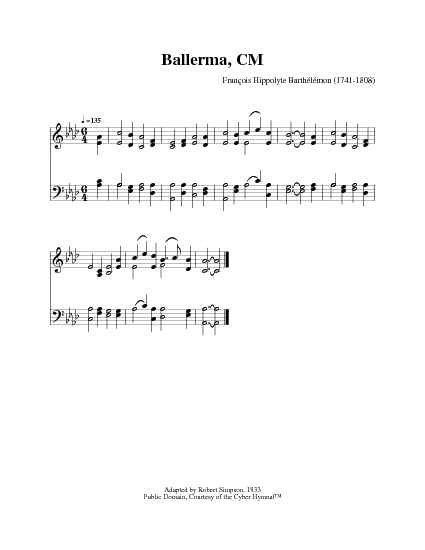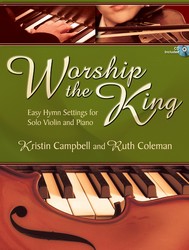- |
User Links
Praise to the Redeemer

Plunged in a gulf of dark despair
Author: Isaac WattsPublished in 475 hymnals
Printable scores: PDF, MusicXMLAudio files: MIDI
Representative Text
1 Plunged in a gulf of dark despair,
We wretched sinners lay,
Without one cheerful beam of hope,
Or spark of glimmering day.
2 With pitying eyes the Prince of grace
Behold our helpless grief;
He saw, and --O amazing love!--
He ran to our relief.
3 Down from the shining seats above,
With joyful haste He fled;
Entered the grave in mortal flesh,
And dwelt among the dead.
4 O for this love, let rocks and hills
Their lasting silence break;
And all harmonious human tongues
The Saviour's praises speak.
5 Angels, assist our mighty joys,
Strike all your harps of gold;
But when you raise your highest note,
His love can ne'er be told.
Author: Isaac Watts
 Isaac Watts was the son of a schoolmaster, and was born in Southampton, July 17, 1674. He is said to have shown remarkable precocity in childhood, beginning the study of Latin, in his fourth year, and writing respectable verses at the age of seven. At the age of sixteen, he went to London to study in the Academy of the Rev. Thomas Rowe, an Independent minister. In 1698, he became assistant minister of the Independent Church, Berry St., London. In 1702, he became pastor. In 1712, he accepted an invitation to visit Sir Thomas Abney, at his residence of Abney Park, and at Sir Thomas' pressing request, made it his home for the remainder of his life. It was a residence most favourable for his health, and for the prosecution of his literary… Go to person page >
Isaac Watts was the son of a schoolmaster, and was born in Southampton, July 17, 1674. He is said to have shown remarkable precocity in childhood, beginning the study of Latin, in his fourth year, and writing respectable verses at the age of seven. At the age of sixteen, he went to London to study in the Academy of the Rev. Thomas Rowe, an Independent minister. In 1698, he became assistant minister of the Independent Church, Berry St., London. In 1702, he became pastor. In 1712, he accepted an invitation to visit Sir Thomas Abney, at his residence of Abney Park, and at Sir Thomas' pressing request, made it his home for the remainder of his life. It was a residence most favourable for his health, and for the prosecution of his literary… Go to person page >Text Information
| First Line: | Plunged in a gulf of dark despair |
| Title: | Praise to the Redeemer |
| Author: | Isaac Watts |
| Meter: | 8.6.8.6 |
| Language: | English |
| Copyright: | Public Domain |
Notes
Plunged in a gulph of dark despair. I. Watts. [Praise to Jesus, the Redeemer.] First published in his Hymns and Spiritual Songs, 1707, in 8 stanzas of 4 lines, and headed "Praise to the Redeemer." In G. Whitefield's Hymns for Social Worship, &c, 1753, st. i.-iii., vi., viii. were given as No. 104. This form of the text was repeated by M. Madan in his Psalms & Hymns, 1760, with the change in st. ii., 1. 4, of "He ran" to "He came to our relief." Through frequent repetition this became the recognised form of the hymn in Church of England hymn-books. Other forms of the text, all beginning with the first stanza, are also in common use in Great Britain and America.
--John Julian, Dictionary of Hymnology (1907)
Tune
BALERMA (Barthélemon)AZMON
Lowell Mason (PHH 96) adapted AZMON from a melody composed by Carl G. Gläser in 1828. Mason published a duple-meter version in his Modern Psalmist (1839) but changed it to triple meter in his later publications. Mason used (often obscure) biblical names for his tune titles; Azmon, a city south of C…


 My Starred Hymns
My Starred Hymns







